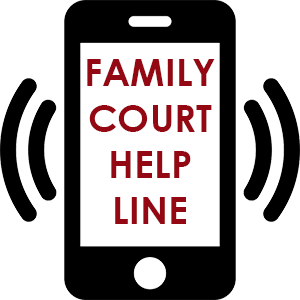Major Changes Coming to Las Vegas Family Courts in 2025: What You Need to Know
Las Vegas Family Courts are under the spotlight in 2025 as lawmakers and the Nevada Supreme Court weigh in on how much privacy families should have in court proceedings—and how much the public should be allowed to see.
If you’re involved in child custody, divorce, CPS-related cases, or any family law dispute in Clark County or across Nevada, understanding these new developments is crucial.
Senate Bill 432: Expanding Privacy in Family Court
In early 2025, Nevada legislators introduced Senate Bill 432, a new law that could significantly expand judges’ authority to close family court hearings and seal court records. The bill passed unanimously through both the Senate and Assembly Judiciary Committees and is now awaiting a full Assembly vote.
SB 432 would allow a judge to close family court proceedings if they find a “compelling interest”, such as protecting a child’s identity, mental health, or safety. However, the bill has sparked debate because it could also:
- Allow court records to be sealed more easily.
- Impose criminal penalties (up to four years in prison and $5,000 in fines) for anyone who shares sealed court information without permission.
- Reduce public oversight and transparency, especially in cases involving judicial misconduct or child welfare decisions.
Nevada Supreme Court Decision: Nester v. Eighth Judicial District Court
Adding more weight to the conversation, the Nevada Supreme Court issued a ruling in February 2025 that reinforced strict standards for closing family court hearings.
In Nester v. Eighth Judicial District Court, the Court ruled that judges must follow the Falconi test—a three-part test that requires:
- A compelling interest (e.g., protecting minors or victims).
- Proof that the interest would be harmed without closure.
- No less restrictive alternative available.
This decision came from a mother’s request to seal sensitive information in a custody hearing involving CPS and mental health records.
The ruling clarified that while privacy is important, public access to courts is also a constitutional right. Judges must carefully balance both under existing legal standards.
Why This Matters for Families and Legal Professionals
For anyone involved in a Las Vegas family court case, these changes could significantly affect how much information remains public—or private.
Attorneys, parents, and media professionals should pay close attention to the outcome of SB 432. If passed, it may change how court reporters, advocates, and even parties to a case are allowed to share court-related information.
At the same time, the Supreme Court ruling in Nester ensures that privacy requests must still be backed by solid legal reasoning.
Key Takeaways:
- SB 432 may allow judges to close family courtrooms more easily and penalize unauthorized disclosure.
- The Nevada Supreme Court reaffirmed the need to meet high standards before closing court proceedings.
- Transparency and accountability may be reduced if the bill becomes law—raising concerns among journalists, lawyers, and civil rights groups.
Stay Informed and Protected
Whether you’re a parent, attorney, advocate, or journalist, it’s essential to stay informed about family court reforms. If you’re concerned about how your case might be affected by these legal changes, speak with a qualified family law attorney in Las Vegas.
Stay tuned for updates as SB 432 moves through the Nevada Legislature, and follow our blog for ongoing coverage of family law reform in Clark County and beyond.


Leave a Reply